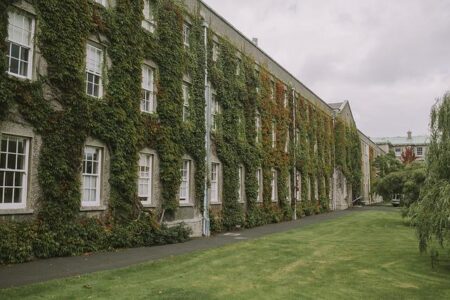Granbury, Texas School Librarian Controversy: A Deep Dive into the Two-Year Legal Dispute
Origins and Context of the Granbury Library Dispute
In early 2022, Granbury, Texas became the focal point of a heated dispute involving the local school libraries. The controversy began when community members raised alarms about certain books accessible to students, particularly those addressing topics such as racial identity, gender diversity, and sexual orientation. Many parents and conservative organizations contended that these materials were unsuitable for children and called for more rigorous oversight. Conversely, librarians and educators defended the necessity of intellectual freedom and the importance of exposing students to a broad spectrum of perspectives.
What started as a disagreement over library content soon escalated into a multifaceted legal and political confrontation, deeply dividing the community. Several pivotal elements shaped the evolution of this conflict:
- Changes in school board policies: Updates to book selection criteria created confusion and intensified disputes.
- Heightened community activism: Both supporters and opponents mobilized through public meetings, petitions, and social media advocacy.
- Legal investigations: Complaints lodged with district attorneys led to formal inquiries into the librarians’ actions.
| Year | Milestone | Result |
|---|---|---|
| 2022 | Community raises concerns | Library materials undergo review |
| 2023 | School board updates policies | Community debate intensifies |
| 2024 | Formal charges filed against librarians | Legal proceedings commence |
Legal Complexities and Obstacles in Prosecuting School Librarians
Attempting to bring legal charges against Granbury’s school librarians has proven to be a challenging endeavor, complicated by statutory protections and procedural intricacies. A primary hurdle is distinguishing between the librarians’ professional responsibilities and alleged wrongdoing, especially since librarians routinely handle sensitive and diverse materials that may be interpreted differently depending on community values.
Significantly, educator immunity laws designed to shield school employees from certain legal actions have made it difficult for prosecutors to establish criminal intent or negligence beyond reasonable doubt. Defense teams have effectively utilized these protections to question the adequacy of evidence and the intent behind the librarians’ decisions.
Moreover, the case highlights broader legal debates, including the challenge of defining what constitutes “inappropriate” content within educational settings, which intersects with First Amendment rights and censorship concerns. Administrative delays and procedural motions have further extended the timeline, reflecting the tension between ensuring due process and responding to community demands.
| Legal Challenge | Effect on Case |
|---|---|
| Educator Immunity | Restricts prosecution’s ability, raising proof standards |
| First Amendment Issues | Complicates legal definitions of objectionable content |
| Procedural Delays | Prolongs litigation, weakening momentum |
| Proof of Intent | Difficult to demonstrate criminal or negligent intent |
Community Response and Shifts in Educational Policy
The announcement of charges against the Granbury school librarians ignited passionate responses across the community, revealing a stark divide in public opinion. Many parents and educators rallied in defense of the librarians, highlighting their essential role in promoting literacy and providing access to a wide array of viewpoints. On the other hand, some local factions expressed unease about certain materials, advocating for tighter controls and clearer standards regarding library content.
This controversy has prompted significant revisions in local education policies, with officials implementing new protocols to better regulate library resources and protect student privacy. Key policy changes include:
- Enhanced review procedures for book acquisitions to ensure suitability for different age groups.
- Mandatory transparency reports from librarians detailing patron requests and challenges.
- Expanded professional development focused on managing sensitive content while upholding intellectual freedom.
These reforms strive to harmonize community expectations with educational principles, potentially influencing similar districts nationwide. The table below illustrates recent changes in policy enforcement metrics:
| Policy Metric | Before Controversy | After Controversy |
|---|---|---|
| Books Reviewed Annually | 50 | 120 |
| Challenges Filed | 2 | 15 |
| Staff Training Hours | 5 | 20 |
Recommendations from Experts on Policy Improvements and Educator Protections
Specialists in education and law stress the necessity for comprehensive reforms that safeguard educators from prolonged legal disputes, which can drain resources and morale. Suggested measures include enacting clear legislative frameworks that define baseless accusations against school personnel and establish prompt, transparent investigative processes. Such reforms are vital to create a supportive environment where librarians and teachers can fulfill their duties without fear of unwarranted legal challenges.
Beyond legislative action, advocates urge the development of strong support networks within school systems, offering legal counsel and mental health services to staff facing scrutiny. Collaboration among policymakers, educators, and community stakeholders is essential to balance accountability with the protection of educational professionals’ rights.
- Legislative Protections: Guard against unfounded legal claims.
- Clear Investigation Procedures: Guarantee fairness and timely case resolution.
- Support Services: Provide legal aid and psychological support.
- Community Involvement: Promote transparency and mutual trust.
| Recommendation | Advantage | Key Participants |
|---|---|---|
| Legal Safeguards | Reduces frivolous lawsuits | Legislators, Educators |
| Investigation Reforms | Ensures equitable and efficient processes | School Boards, Legal Experts |
| Mental Health Resources | Enhances staff well-being | Educational Staff |
| Community Engagement | Builds trust and accountability | Parents, Administrators |
Conclusion: Broader Implications of the Granbury Librarian Case
The ongoing two-year legal saga involving Granbury’s school librarians highlights the intricate and often contentious balance between educational freedom, community values, and legal frameworks. As the case progresses, it raises vital questions about the responsibilities of educators, the boundaries of censorship, and the protections necessary for those working in public education. The resolution will not only affect the individuals involved but may also establish important precedents for handling similar disputes nationwide. Coverage of this evolving story will continue as new developments arise.







